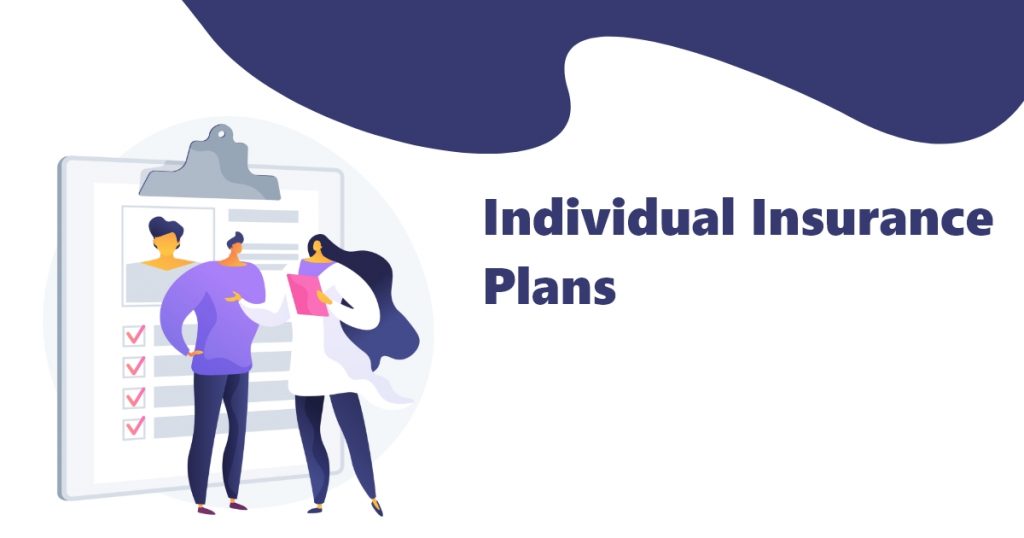There are so many companies in India selling health insurance policies, choosing one can be a difficult Health insurance plan for the family. Apart from a plethora of plans to choose from, intimidating jargon, also known as policy wordings, adds to the confusion. While purchasing Health Insurance Plans in India, it is important to consider a few factors before settling on a plan. The following are the ten things to think about before buying healthcare insurance
Table of contents
- 1.Different Types of Health Insurance in India
- 2.The Amount of Coverage Required in an Insurance Policy
- 3.The Clause Concerning the Waiting Period
- 4.Co-Payment and Treatment Limits
- 5.Hospitalization Benefits without Having to Pay Cash
- 6.The Company’s Credentials
- 7.Maternity Expenses Coverage
- 8.Claim Procedure
- 9.Ending note –
- 10.FAQ
1.Different Types of Health Insurance in India
1.1 Individual insurance plans:

Individual insurance plans are among the most common types of Health Insurance Plans in India. A policy of this type only covers one person. It covers your medical expenses if you are admitted to a hospital. In such cases, the premium will be determined by personal factors such as your age, medical history, and so on.
1.2 Family floater insurance plans:
As the name implies, this type of health insurance plan provides coverage and Health Insurance Plans for families. It is similar to an individual policy in that the sum insured is usually higher and shared among family members. One of the primary benefits of such an insurance plan is that you do not have to manage multiple policies. Furthermore, such policies are less expensive than purchasing a separate policy for each member.
1.3 Senior citizen insurance plans:

These health insurance policies are specifically designed for senior citizens over the age of 60. Because older people are more likely to file a claim, the premium must be higher in such cases. Furthermore, many insurers do not emphasize pre-medical screening or exclude pre-existing diseases before granting senior citizen insurance, even though old age is often associated with health issues.
1.4 Critical illness insurance plans:

A critical illness insurance plan protects you against fatal diseases such as kidney disease, heart disease, cancer, paralysis, and so on. When a covered illness is diagnosed, the policyholder receives a lump sum payment. In contrast to individual policies, no hospitalization is required to claim the money. Such a plan is recommended for those who have a family history of such illnesses.
Read More- TIPS FOR PREVENTING STROKE AND HEART DISEASES
1.5 Plans for personal accident insurance:

Accidents are common, and the costs they entail can deplete all of your savings. A personal accident insurance policy will cover the cost of medical treatment required following an accident. Typically, such a policy protects against three events: Accidental death, partial disability, and total disability
2.The Amount of Coverage Required in an Insurance Policy
As medical expenses rise, the kind of coverage we need from our medical insurance policy has become imperative. Although Rs 5 lakh can appear to cover a lot today, it may end in 10 years. It’s a good idea to influence medical inflation before deciding how much coverage you and your family will have to deal with during a difficult time.
3.The Clause Concerning the Waiting Period
You will be in a better position to decide if you are aware of the waiting period clause. During this time, the insurer will not accept any claims based on pre-existing conditions or specific illnesses. And it can last anywhere from 24 to 48 months, depending on the insurer and the plan you choose. Furthermore, you will be able to claim the benefits only after this period has passed.
“This waiting period will apply to pre-existing illnesses such as thyroid, high blood pressure, diabetes, and so on that one may have before purchasing the policy. Furthermore, it applies to specific treatments and illnesses such as arthritis and varicose veins.”
4.Co-Payment and Treatment Limits
Depending on the type of policy you choose, the coverage for certain treatments, such as a cataract operation, may be limited. A cataract operation, for example, may have a Rs 40,000 limit. If you choose to see a doctor who charges Rs 45,000, the extra Rs 5,000 will be your responsibility. Co-payment clauses in insurance policies also require the insured party to cover up to 20% of the claim settlement amount. You could end up spending a lot of money depending on the type of treatment you’re claiming for.
5.Hospitalization Benefits without Having to Pay Cash
Health insurance companies typically have affiliations with network hospitals through which insured members and Mediclaim policy for families can receive cashless treatment in the event of a medical emergency. It saves you from the time-consuming paperwork required for admission and claim. Furthermore, the insurer pays the insured amount directly to the hospital.
As a result, you do not need to arrange for funds and then file for reimbursement. It will be beneficial if you check with your insurer for a list of impaneled hospitals and are aware of all network hospitals in your area.
6.The Company’s Credentials
Finally, beyond all of the product comparisons and technical aspects, selecting a brand or company with the appropriate credentials is critical. While deciding on a policy, my advice is to consider the following aspects of the company.
a) Brand reputation and lineage – Select a brand that is reliable and has a long history of serving customers.
b) Claim settlement figures – The claims settlement percentage is the ratio of total claims settled by the brand to total claims received. Check the claim settlement ratios that are available in the public domain, such as the company website.
c) Customer service – You don’t want to be stuck with a company that doesn’t care about its customers or has complicated processes. While no brand will be complaint-free, the number of complaints reported divided by the total number of policies sold is a good indicator.
7.Maternity Expenses Coverage
Many people make the mistake of ignoring the maternity benefits in their healthcare insurance. With the cost of delivery and maternity care already skyrocketing, it is preferable to purchase a health plan that includes maternity coverage. Typically, there is a 2- to a 4-year waiting period before you can claim benefits. For example, if you intend to marry or start a family in three years, a plan with a two-year waiting period will suffice.
8.Claim Procedure
Examine the policy language and go through the insurance company’s health insurance claim process. When it comes to settling health claims, a smooth claim procedure is a godsend. You can conduct some research, read online customer reviews, and choose a health insurance provider known for providing seamless claim settlement services.
9.Ending note –
Illness can strike at any time, and the cost of treatments, medications, and other medical expenses can run into thousands of dollars. As a result, purchasing health insurance should be one of the first steps in a person’s financial planning journey. In India, there are various types of health insurance plans. Before selecting one, you must assess your needs and personal circumstances.
10.FAQ
Q.When buying health insurance, what questions should you ask?
You should ask questions like -,
Will this health insurance plan save me money if I’m healthy?
If I get sick, will this health insurance plan be affordable?
Does this plan cover my doctors? …
What kind of prescription drug coverage does this health insurance plan provide?
Q.How long do you have to pay for health car insurance?
Some health insurance policies cover specific expenses for a once-a-year general health checkup. Normally, this is only available once every four years.
Q.In India, how much does health insurance cost?
Medical insurance, on the other hand, costs only Rs 10,000-15,000 per year. When the tax benefits offered on medical insurance under Section 80D are considered, the costs for those in the highest 30% tax bracket are much lower, ranging from Rs 7,000 to Rs 10,500 per year.
